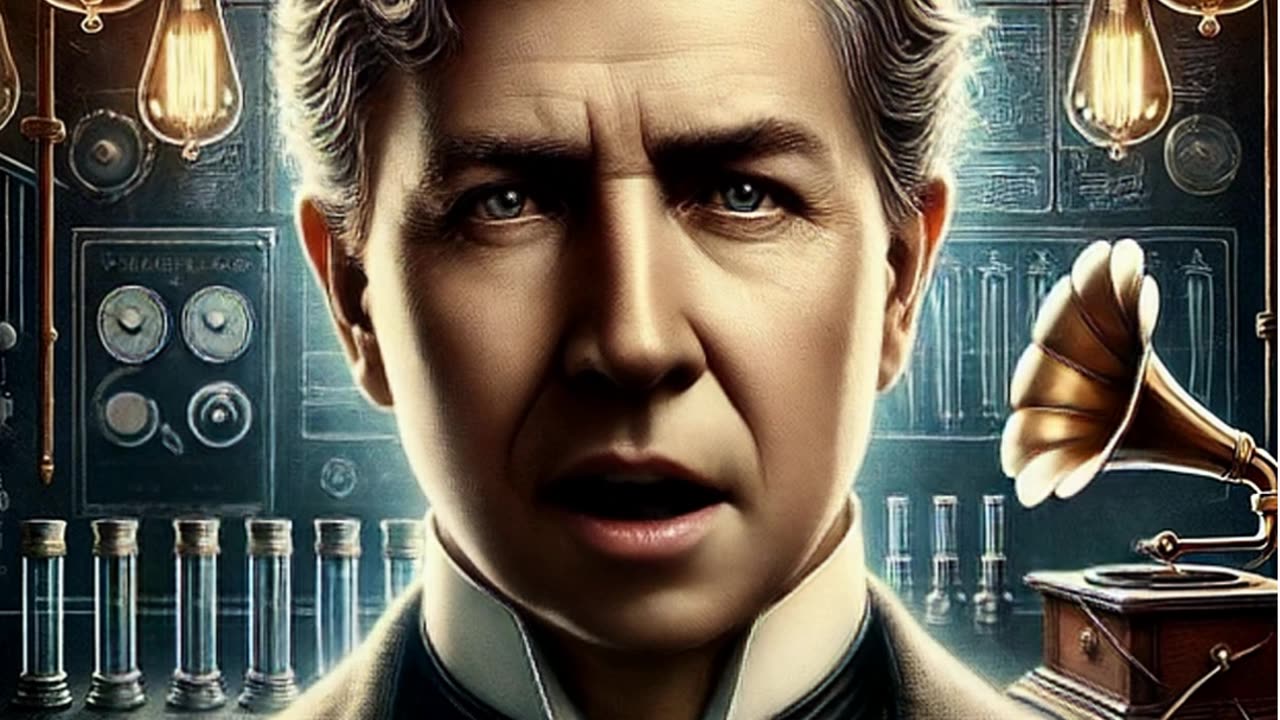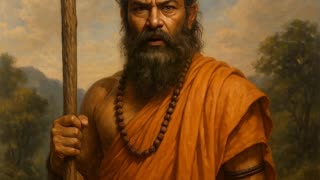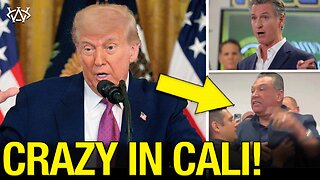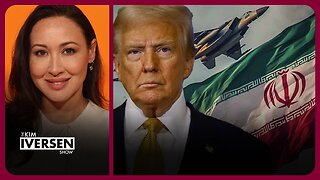Premium Only Content

Thomas Edison Tells of His Inventions and How He Was Known to Improve Ideas Instead of Creating Them
Presented to you by: http://www.HistoricalConquest.com
Read more on our blog at: https://www.historicalconquest.com/blog
My name is Thomas Edison, and I was an inventor, businessman, and visionary who helped shape the modern world. I didn’t just invent things—I found ways to make technology practical, affordable, and available to millions of people. Some called me a genius, others called me stubborn, but I never gave up. Let me tell you my story.
I was born on February 11, 1847, in Milan, Ohio, and grew up in Port Huron, Michigan. I didn’t have the easiest time in school—my teachers thought I was too curious and too distracted. My mother believed in me, though, and homeschooled me, allowing me to explore science, reading, and inventing at my own pace. By the time I was a teenager, I was selling newspapers and experimenting with chemistry in a small lab I built in a train car.
When I was 16, I got a job as a telegraph operator, which introduced me to electricity and communications technology. I realized that small improvements in machines could make a big difference. Soon, I was working on my own inventions, and in 1869, I moved to New York City to turn my ideas into reality.
One of my first big successes was the stock ticker, a machine that helped businesses track stock prices in real-time. That invention earned me enough money to set up my first research lab, where I and my team could invent, test, and improve new technologies. I believed in teamwork, experimentation, and persistence, and I worked day and night to find solutions to problems.
I became famous for my work with electricity, and in 1879, I introduced the first practical incandescent light bulb. Now, I didn’t invent the light bulb—other scientists had experimented with it before me. But my team and I figured out how to make a longer-lasting, affordable version that people could actually use in their homes and businesses. And we didn’t stop there—we built the first power stations, bringing electricity to entire cities.
Another big achievement was the phonograph in 1877, which allowed people to record and play back sound for the first time. This invention amazed the world, and I kept improving it, helping to lay the foundation for the music and recording industry. Later, my work with motion pictures helped create the first movie cameras and projectors, paving the way for Hollywood and the film industry.
Of course, I had my rivalries. One of the biggest was with Nikola Tesla, a brilliant inventor who once worked for me. He believed in alternating current (AC) electricity, while I supported direct current (DC). We had a fierce competition known as the “War of the Currents,” and though Tesla’s AC system eventually won out, my contributions to electrical infrastructure were still critical.
By the time I passed away on October 18, 1931, I had filed over 1,000 patents and left behind inventions that changed the way people live, work, and communicate. Some say I was just a businessman, taking credit for my workers' ideas. But what I know is this: invention is about persistence, teamwork, and turning dreams into reality.
If there’s one lesson I want you to take from my story, it’s this: genius is 1% inspiration and 99% perspiration. If you have an idea, work for it, improve it, and never stop trying. That’s how you change the world. Thank you for listening.
Visit us at: https://www.historicalconquest.com/marketplace
#historicalconquest #history #historical #SecondIndependence #abolition #Freedom #IndustrialRevolution #Industry #colonialera #colonialamerica #constitution #usconstitution #unitedstates #unitedstatesofamerica #wildwest #slavery #civilwar #war #abrahamlincoln
-
 1:00
1:00
The Historical Conquest Channel
5 days agoVishvamitra Tells His Story of Turning From Royal Power to the Power of Words, Becoming a Great Sage
221 -
 LIVE
LIVE
BonginoReport
1 hour agoDem Governors Defend Dangerous Sanctuary State Policies - Nightly Scroll w/ Hayley Caronia (Ep.68)
3,528 watching -
 LIVE
LIVE
Robert Gouveia
1 hour agoSenator GOES NUTS on Noem! Trump vs. Newsom in Court! Tim Walz Obliterated!
1,375 watching -
 LIVE
LIVE
SpartakusLIVE
28 minutes agoAre they really going to end WZ?? || Duos w/ @GloryJean
112 watching -
 DVR
DVR
TheCrucible
1 day agoThe Extravaganza! (6/12/25)
41.4K12 -
 LIVE
LIVE
Kim Iversen
1 hour agoDAYS FROM WAR?? U.S. Quietly Pulls Personnel Before Possible Iran Strike | Inside Daily Life For Gazans
1,223 watching -
 1:15:05
1:15:05
Dr. Drew
5 hours agoSalty Cracker: LA Weirdos Burn Cars, Suddenly Stop Caring About Toxic Fumes or The Environment, As Residents Beg For Roof Korean Relief w/ Elex Michaelson – Ask Dr. Drew
6.78K6 -
 LIVE
LIVE
Spartan
43 minutes agoPro Halo Player | Halo Infinite Ranked Arena into SWTOR
7 watching -
 LIVE
LIVE
Mally_Mouse
2 hours agoLet's Play!! - Jak 2 pt. 13
67 watching -
 50:24
50:24
Grant Stinchfield
3 hours ago $0.93 earnedThe Left’s Secret Plan to Spark a National Guard Bloodbath!
2.47K7